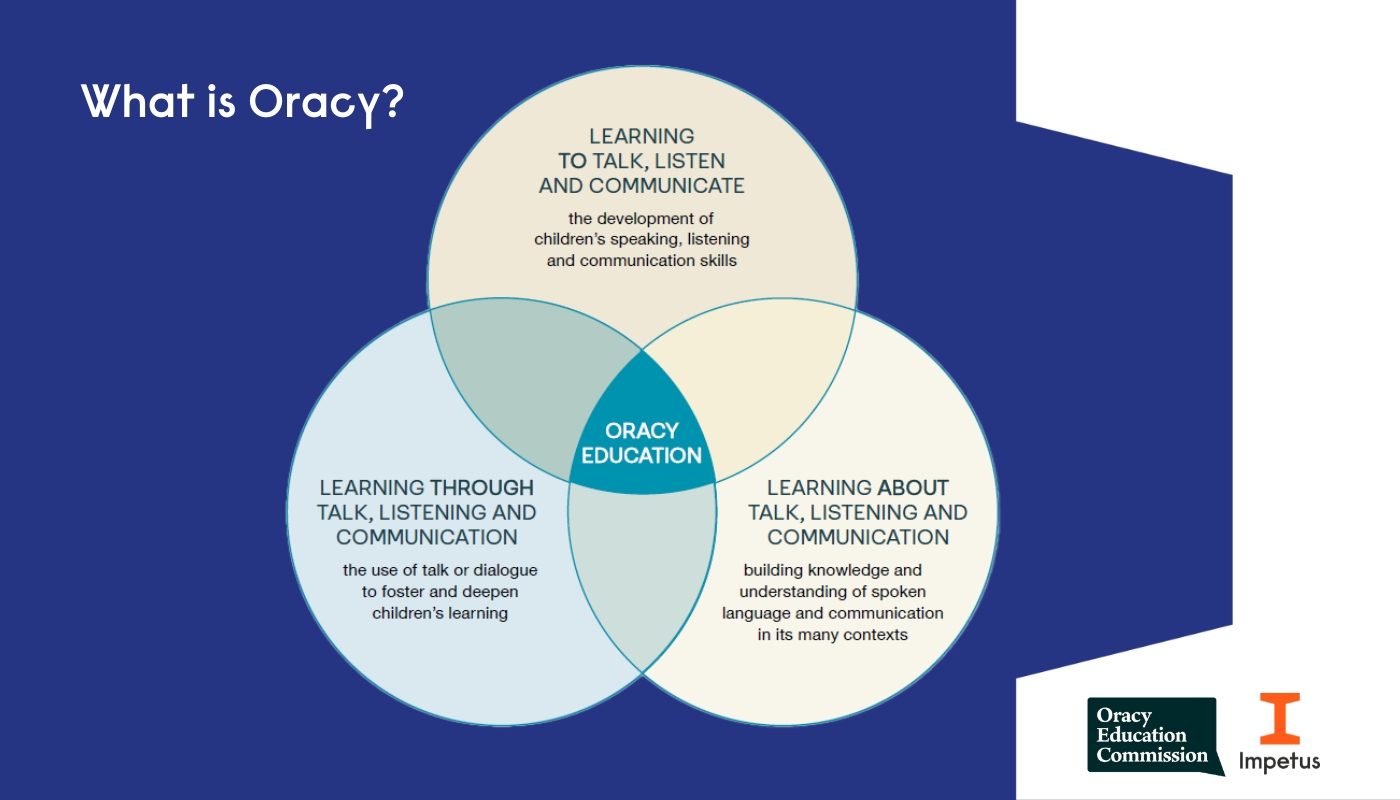Last week, the Oracy Education Commission - hosted by Voice 21 in partnership with Impetus - launched their report ‘We Need to Talk’. The report details the critical role of oracy education for building up children and young people to become citizens that live happy, successful lives.
Let’s explore the report in five steps!
What is oracy?
Oracy is “articulating ideas, developing understanding and engaging with others through speaking, listening and communication.” It has three main components:
- Learning to talk
- Learning through talk
- Learning about talk

Why oracy? Why now?
In a world shaped by AI-driven technology, rising social anxiety, post-pandemic mental health challenges, increasing polarisation and a persistent achievement gap, the Oracy Education Commission believes it is essential now, more than ever, to prioritise oracy in education. This is so that young people are equipped to articulate ideas, listen critically, and engage in respectful discussions that help them find their place in society.
Impetus has long-supported oracy, an intervention driving better attainment outcomes for young people from disadvantaged backgrounds. That’s why we have partnered with Voice 21 since 2019 and supported the Oracy Education Commission.
Despite the evidence, oracy has long-suffered from a lack of consensus on what it is, what it means and how it can be delivered. This report is a crucial first step towards answering some of these questions. Over the coming months, we look forward to continuing this journey by better demonstrating oracy’s impact on attainment, and its importance for the young people we care about.
Oracy education - how will it work?
The report advocates for Oracy to be integrated into every subject and across the national curriculum on the basis that oracy is as essential as reading, writing and mathematics. It is in the vital early years where children develop the habits of socialisation, listen to and tell stories, and develop an emerging sense of how and where they fit into the world. Then, as they progress through secondary school and further, pupils gain more specialist knowledge and insights across a widening range of subjects. These are enhanced by opportunities for diverse speaking and listening activities, both within and beyond the classroom.
Opportunities beyond the classroom
The benefits of a strong oracy education extend beyond the classroom, impacting various aspects of a person's life:
Work and employment: Employers value spoken communication and interpersonal skills, which can enhance leadership and promotability of employees in an increasingly AI-driven world.

Wellbeing: The interpersonal and collective nature of talk can help young people build and sustain relationships by giving them the tools to share their feelings, ask for help, engage positively with others and feel understood and valued.

Civic engagement: Oracy empowers young people with the confidence to advocate for themselves and others, while helping them to critically engage with their peers in dialogue. This prepares them to be active and reflective citizens in an ever-polarising society.
Recommendations for implementing oracy education
The Oracy Education Commission advocates for oracy to be implemented more centrally into the experience of all young people, helping them develop critical knowledge and skills, and a sense of civic empowerment.
To achieve this, the Commission recommends:
- Making oracy a core aspect of education from early years to post 16
- Building oracy into teacher training and development
- Promoting evidence-based approaches to oracy
- Reflecting the scope and value of oracy in assessment and accountability
Oracy is more than just talk—it’s a vital skill for confidence and success.
